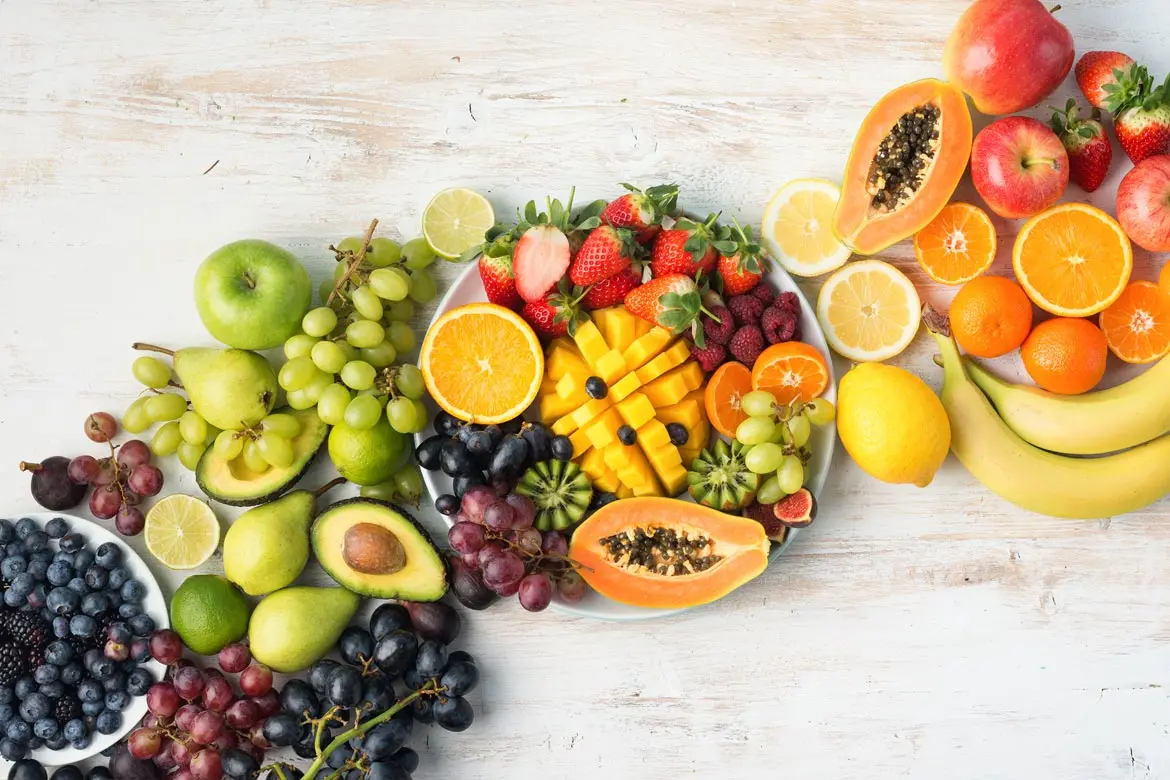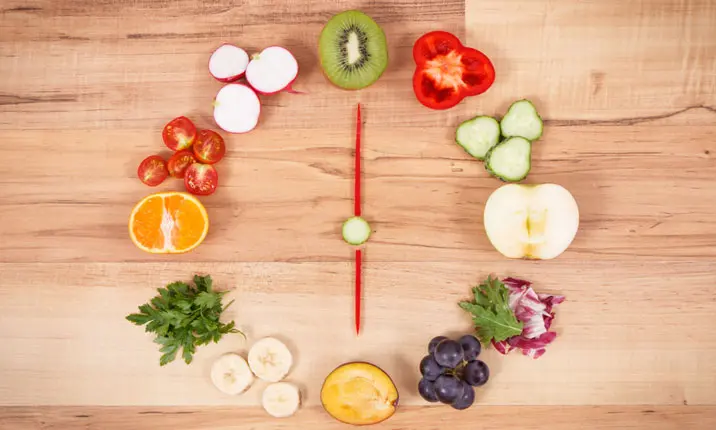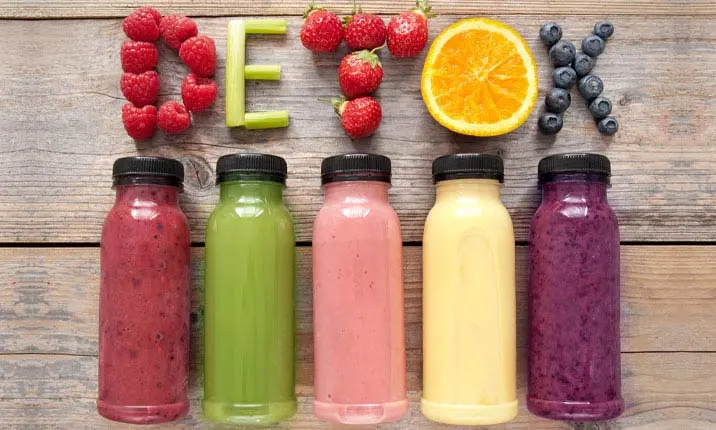Being rich in nutrients, fruits are an important part of a healthy diet. However, there are several popular myths claiming that there are optimal times for fruit consumption. In reality, we should not take these claims seriously. No matter the time of day, eating fruits is a sweet and delicious way to feed your body with plenty of healthy nutrients.
We reveal the truths behind some of the more common claims about fruits in this article.
Myth 1: You don't get all the nutrients from fruits if you eat them with a meal
Eating fruits on an empty stomach is the most effective way for your body to absorb all its nutrients. This claim suggests that nutrients are lost when fruits are taken with a meal.
Fact
The human digestive system is very efficient at absorbing nutrients from food. When eating, your stomach releases only a little bit of food at a time so that your intestines have the chance to absorb as many nutrients as possible.
Your small intestine is about 6 metres long, which gives it ample length and time to absorb nutrients during digestion. This means that your digestive system will have no problem receiving the nutrients from the fruits you consume, whether or not you eat them with a meal.
Myth 2: You can only eat fruits on an empty stomach
Having fruits with your meals causes the rate of digestion to slow down and food to break down in the stomach. Along with this, there are also claims that the undigested food is what causes indigestion, stomach pains and a myriad of other ailments.
Fact
Although the fibre in fruits can slow down the release of food from your stomach, there is no truth to its claimed effects. Yes, fruits slow down the rate your stomach passes food into the small intestine, but, they do not slow digestion down in the stomach.
Slowing down digestion can, in fact, be a positive effect. The fibre in fruits keeps you feeling full for a longer period of time, helping you consume fewer calories.
Myth 3: The most optimal time to eat fruits is 6 hours after you wake up
Your digestive system needs to be 'reactivated' as the day progresses. It is believed that your metabolism rate decreases around midday and that eating food rich in sugar, like fruit, raises your blood sugar levels – 'activating' your digestive system.
Fact
There is no need to 'reactivate' your digestive system. The digestive system is able to digest food at any time of the day, with or without fruits. Although eating large quantities of food might temporarily cause the body to divert more blood flow to the digestive organs, this does not affect your metabolism rate.
The claims that fruits should be eaten in the afternoon should not be taken seriously. No matter the time of day, fruits are good for you.
Myth 4: You shouldn't eat fruits before sleeping
Ironically, this myth contradicts the previous one. Some people contend that eating fruits before sleeping increases your blood sugar level. As your body does not have time to stabilise the blood sugar levels before you sleep, this can lead to weight gain.
Fact
Your body does not shift from burning calories to storing them as fat when you fall asleep. You still burn calories to maintain your bodily functions. There is also no evidence to show that consuming fruits at certain times of the day varies weight gain.
There is substantial evidence, however, to show that eating 2 servings of fruit and a lot of vegetables throughout the day correlates to lower fat percentages and a decreased likelihood of weight gain. Substituting other foods for fruit and vegetables is one of the best things you can do if you want to lose weight. It is an efficient way to meet all your nutritional needs, all while having a balanced calorie intake.
Myth 5: You shouldn't eat fruits if you have diabetes
It's a common myth that you shouldn't eat certain foods if you have diabetes because they're "too sweet". Some fruits do contain more sugar than others, but that doesn't mean you shouldn't eat them if you have diabetes.
Fact
The concern has been that because fruits contain sugar, they increase your blood glucose levels. However, most fruits have low to medium glycaemic indexes, so they do not lead to a sharp rise in your blood glucose levels compared to other carbohydrate-containing foods like white or refined bread products.
Managing diabetes has to do with managing your blood glucose, blood fats, blood pressure and your weight, and fruits and vegetables can play a positive role in all these.
Myth 6: There is no difference between fresh and dried fruits
According to this myth, there is no difference in nutrition content between fresh and dried fruits and therefore can be consumed interchangeably.
Fact
Fresh fruits and dried fruits both have their own health-promoting qualities. Fresh fruits are high in minerals and vitamin C, which is a heat-sensitive vitamin that is often reduced or lost in dried fruit during processing. Fresh fruits also have high water content in them.
Dried fruits are good sources of vitamins, minerals and fibre. It is also high in natural sugar and calories because after the water has been removed, it concentrates all the sugar and calories in a much smaller package. Portion control is important if you are on a weight reduction plan. It is also important to choose only the plain dried fruits rather than those coated with sugar or added preservatives, which could compromise its nutritional value.
Myth 7: Juicing is healthier than eating whole fruits
There are proponents to the juicing fad who claim that juicing is better than eating whole fruits as the body can absorb the nutrients better and it gives the digestive system a rest from digesting fibre. They also claim that juicing can reduce your risk of cancer, boost your immune system, remove toxins from your body, aid digestion and help you lose weight.
Fact
Juicing is not healthier than eating whole fruits. There is no scientific evidence that backs the claim that extracted juices are healthier than the juice you get by eating the whole fruit.
While the juice that is extracted from fresh fruits contain most of the vitamins, minerals and plant chemicals found in the fruit itself, whole fruits also have healthy fibre, which is lost during most juicing. Fibre also adds bulk, which means you'll be less likely to overeat as you feel full more quickly. It takes several apples to get a cup of juice, but one is enough if you're eating the whole fruit.
Myth 8: Fruit contains bad sugar
Fruits contain a type of sugar called fructose that in high doses is linked to health issues such as diabetes and heart disease.
Fact
When consumed as a whole fruit, the sugar in fruits alongside other nutrients are good for you and adds minimal fructose to your diet. In fact, chances are that you might be getting too much fructose in your diet through the consumption of sugar-sweetened beverages, such as soda, sweet coffee drinks, or even fruit juice. Additionally, fruits also have fibre, which helps to slow down the absorption of sugar in the bloodstream.
Research has shown that there is actually an inverse relationship between eating fruit and body weight and the risk of obesity-related diseases.
Myth 9: Fruit detox drinks can rid the body of toxins
Juicing is a good way to remove toxins from your body, which helps your organs function better and stay in optimal condition longer.
Fact
There is no clear scientific evidence to support the claim made for detox juices. Juicing deprives you of the fibre contained in the fruit, therefore, drinking only freshly squeezed fruit and vegetable juices for several days at a time is actually not a good idea. Long-term consumption may also be toxic in high doses and lead to permanent organ damage.
Nevertheless, not all is bad with these drinks. Incorporating juices that is rich in fruits, vegetables, nuts and seeds into your diet without totally replacing your meals may be healthful and promotes the natural detoxification system in the body. This creates overall balance and also helps you achieve your daily recommended dietary intake. Opt to blend the fruits instead of juicing them to retain the fibre.
Fruits are sources of many essential nutrients and an important part of a healthy diet.
Regardless of the time of day, eating a variety of fruits is a sweet and delicious way to get plenty of healthy nutrients. However, any fruit has the potential to cause an allergic reaction and if you suspect you have a food allergy after eating, it is important to see a doctor as soon as possible.

















